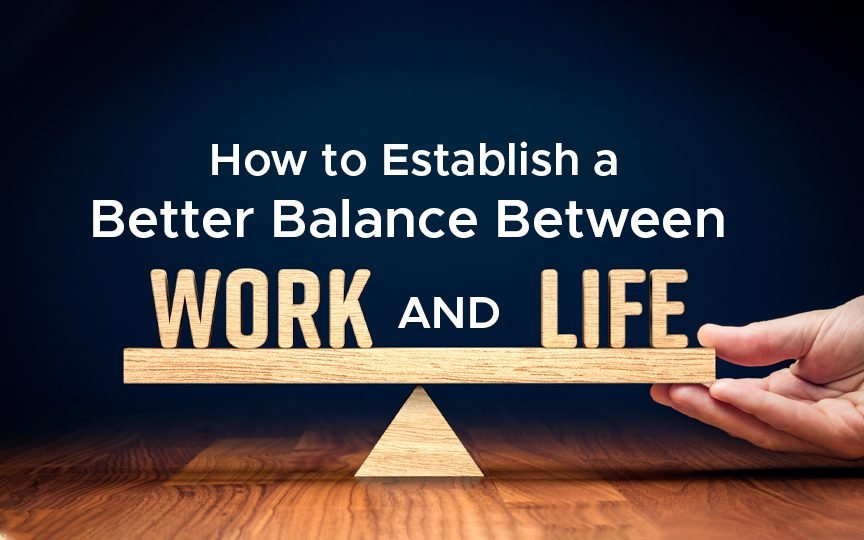Do you ever feel as if you never have enough time to do all of your tasks? Do your professional responsibilities appear to frequently conflict with your personal commitments? Or are your personal problems interfering with the quality of your work? If you recognize any of these challenges, your work-life balance may be turned in one direction or the other.
The best approach to deal with this sort of imbalance is to learn more about what a good work-life balance is, how it may enhance your life, and what measures you can take to improve your personal work-life balance. This article contributes to answering these questions.
Aviva’s study has recently created somewhat of a stir. It indicated that, since the spread of the pandemic, people have prioritized work-life balance over money. According to Aviva, “more workers said they were drawn to their current role because of the work-life balance (41%) than the salary (36%).” This is a shift in ranks from before the epidemic in 2019.”
With the approaching cost of living issue and rising number of bills on everyone’s minds, no one can deny the significance of earning enough to make a living… it simply makes finding work-life balance that much more difficult.
And in today’s fast-paced world, it gets difficult to manage and take time out of the work for ourselves as well. Whereas there are people around us managing each and every role with such ease. From work life to personal life, from taking care of their hobbies to meeting friends, they are doing it all.
Let’s peek into some of the habits and tips these people use to attain the perfect balance for all the roles they play.
Some of the Tips to attain work-life balance
Achieving a healthy work-life balance is essential for your overall well-being and happiness. A balanced work life is the key to a number of factors in our life. We cannot just keep going to work and coming back home to go back to work again. It is not only harmful to our mental health but it also affects our personal lives in the long run.
Here are some tips to help you maintain a better balance between your work and personal life:
Set Clear Boundaries:
Establish clear start and end times for your workday and stick to them as much as possible. Create physical boundaries, if possible, by designating a specific workspace in your home.
Prioritize Your Time:
Identify your most important tasks and tackle them first. This can help you accomplish more in less time. Learn to say no to non-essential commitments that can overextend you.
Plan and Organize:
Use tools like calendars and to-do lists to manage your time efficiently. Plan your week in advance, including both work and personal activities.
Take Breaks:
Regular short breaks during work can boost productivity and reduce stress. Use your lunch break to relax and recharge, rather than continue to work.
Set Realistic Goals:
Be realistic about what you can achieve in a day. Don’t overload yourself with tasks. Break larger tasks into smaller, manageable steps.
Delegate and Seek Help:
Don’t be afraid to delegate tasks at work and at home if possible. Ask for help from family members or consider outsourcing certain tasks.
Learn to Disconnect:
Set aside time to disconnect from work completely, especially after working hours. Turn off email and work notifications when you’re not working.
Invest in Self-Care:
Prioritize self-care activities like exercise, meditation, hobbies, and spending time with loved ones. Make time for activities that help you relax and recharge.
Establish a Routine:
Having a daily routine can help create a sense of structure and balance in your life. Stick to a consistent sleep schedule for better overall health.
Communicate with Your Employer:
If your job consistently demands too much of your time, consider discussing options for a more flexible schedule with your employer.
Learn to Say No:
Politely decline additional work or commitments when you already have enough on your plate.
Evaluate and Adjust Regularly:
Periodically assess your work-life balance and make necessary adjustments based on your changing circumstances and priorities.
Unplug Before Bed:
Avoid screens and work-related tasks at least an hour before bedtime to ensure a good night’s sleep.
Set Personal Goals:
Define your personal and professional goals to help guide your decisions and maintain balance.
Seek Support:
Talk to friends, family, or a therapist if you’re struggling to balance work and life. They can provide valuable insights and support.
Remember that achieving work-life balance is an ongoing process and may require adjustments along the way. It’s essential to prioritize your well-being and make conscious choices that align with your values and goals.
Learn to Let Go:
Accept that perfection is not always attainable, and it’s okay to let go of unrealistic expectations, both at work and in your personal life.
Batch Tasks:
Group similar tasks together to minimize context-switching, which can be mentally draining.
Use Technology Wisely:
Leverage productivity apps and tools to streamline tasks and stay organized.
Practice Mindfulness:
Incorporate mindfulness meditation or deep-breathing exercises into your daily routine to reduce stress and increase focus.
Set Technology Boundaries:
Establish specific times to check emails and messages, rather than constantly being on-call.
Limit Commute Stress:
If possible, consider options like remote work or adjusting your commute to reduce stress and save time.
Delegate Household Chores:
Share household responsibilities with family members or consider hiring help to reduce your workload at home.
Invest in Professional Development:
Enhance your skills to become more efficient at work, which can help you get tasks done more quickly and leave more time for your personal life.
Evaluate Your Career Goals:
Assess whether your current job aligns with your long-term career goals and values. Sometimes, a career change might be necessary for a better work-life balance.
Celebrate Achievements:
Recognize and celebrate both small and significant achievements in your personal and professional life.
Disconnect on Weekends:
Unless it’s absolutely necessary, avoid working on weekends and use this time for relaxation and fun activities.
Create a Supportive Environment:
Surround yourself with people who understand and respect your need for work-life balance.
Take Vacations and Time Off:
Regularly use your vacation days and personal time to recharge and spend quality time with loved ones.
Learn to Manage Stress:
Develop effective stress management techniques such as yoga, exercise, or counseling to handle work and personal stressors.
Consider Part-Time Work or Job Sharing:
If possible, explore options for part-time work or job-sharing arrangements that allow for more flexibility.
Time Management Training:
Consider taking a time management course to learn techniques for better managing your time and tasks.
Create a Supportive Routine:
Develop daily habits that promote a balanced lifestyle, such as regular exercise, healthy eating, and adequate sleep.
Maintain Social Connections:
Make an effort to maintain and nurture relationships with friends and family, as social connections are vital for your well-being.
Seek Professional Help When Needed:
If you find it challenging to balance work and life due to mental health issues or excessive stress, consider seeking guidance from a therapist or counselor.
Remember that work-life balance is a personal journey, and what works best for one person may not work for another. Experiment with different strategies and make adjustments as needed to find the balance that suits your unique circumstances and preferences.
Learn to Say “Yes” to Yourself:
Prioritize your own well-being by saying “yes” to activities and opportunities that bring you joy and fulfillment.
Set Weekly or Monthly Goals:
In addition to daily tasks, set longer-term goals for the week or month to give yourself a sense of purpose and direction.
Embrace Flexibility:
Be open to adjusting your schedule and routines as life circumstances change. Flexibility can be key to maintaining balance.
Practice the Two-Minute Rule:
If a task takes less than two minutes to complete, do it immediately rather than putting it off.
Engage in Lifelong Learning:
Continue to acquire new skills and knowledge to stay adaptable in your personal and professional life.
Delegate at Work:
Delegate tasks to colleagues or subordinates when appropriate to free up your time for more important responsibilities.
Seek a Supportive Work Environment:
Look for or create a work environment that promotes work-life balance and values employee well-being.
Track Your Time:
Use time-tracking tools or apps to monitor how you spend your time and identify areas where you can become more efficient.
Unplug During Vacations:
Truly disconnect during your vacations to recharge and return to work refreshed.
Develop a Morning Routine:
Start your day with a morning routine that includes activities like exercise, meditation, or reading to set a positive tone.
Utilize the Pomodoro Technique:
Work in focused, short bursts (e.g., 25 minutes) followed by a short break to maintain productivity and prevent burnout.
Limit Perfectionism:
Recognize that perfectionism can lead to excessive work hours and stress. Strive for excellence but accept that nothing is perfect.
All these steps have helped thousands of professionals attain work-life balance. It would help you too.
In the end,
It is important for us to understand as an individual what works best for us. To have a balanced life, we need to prioritize certain things and follow certain rules. Work and life do not naturally balance out, and when your work demands more and more of your time and energy, it can be difficult to imagine a path out. You may adopt positive habits and make the best of your situation, but actual transformation takes place when you realize the importance of a healthy and stressless life.
References







